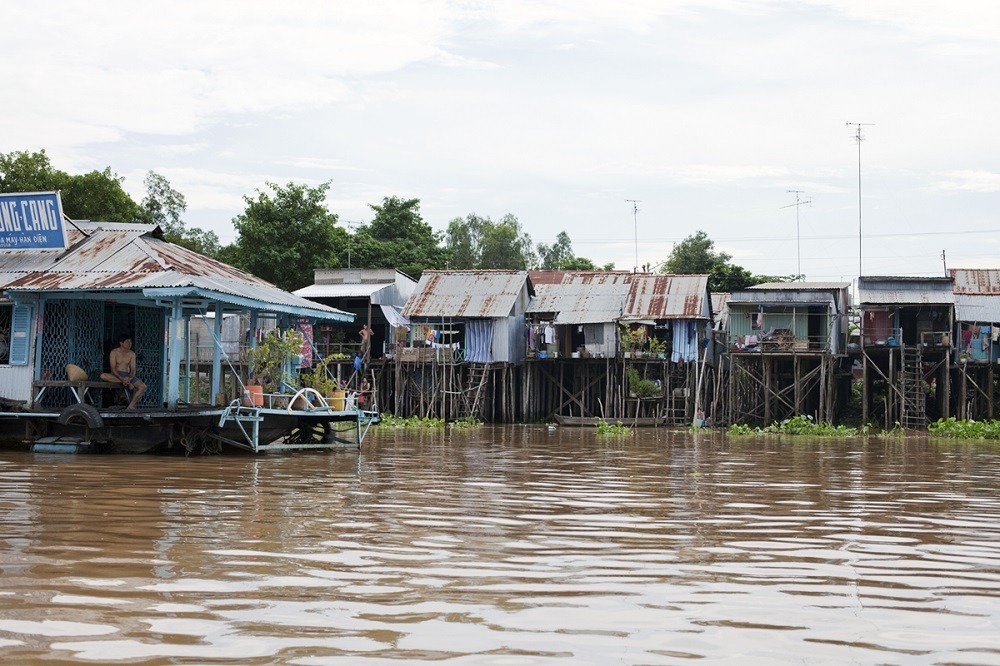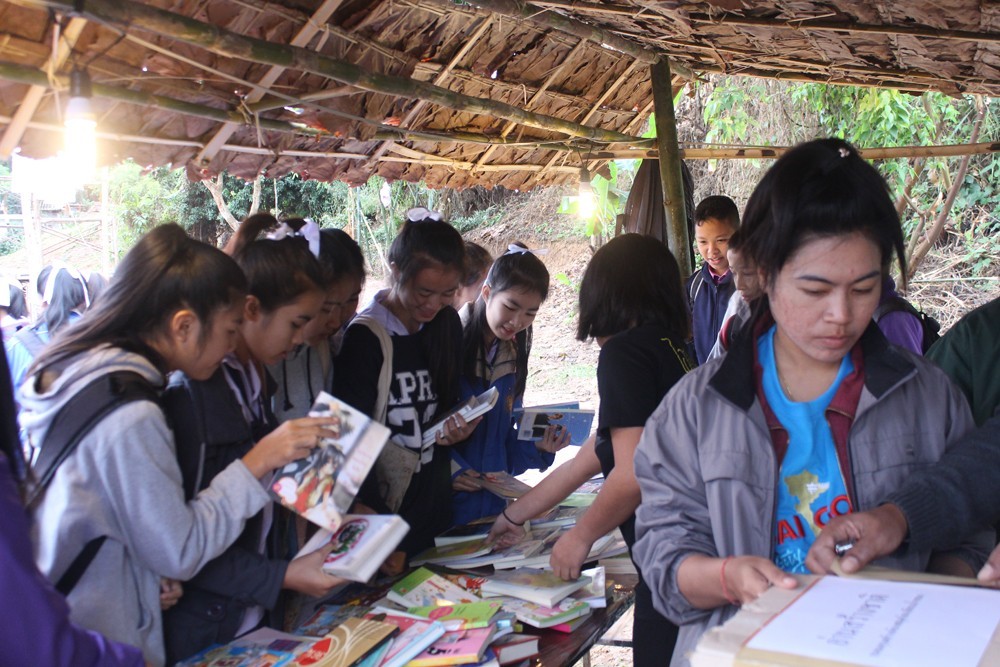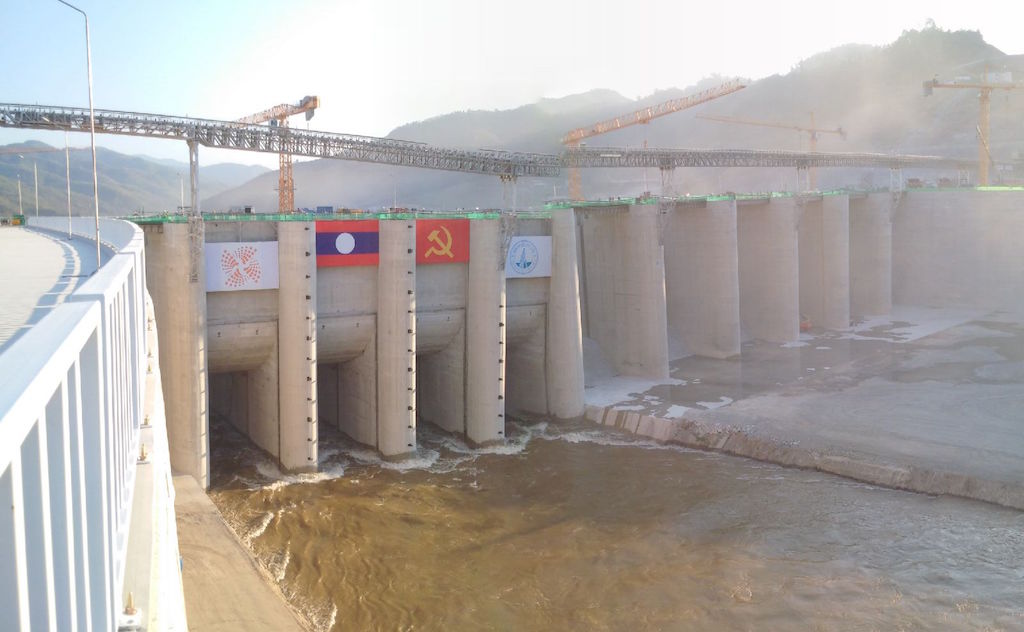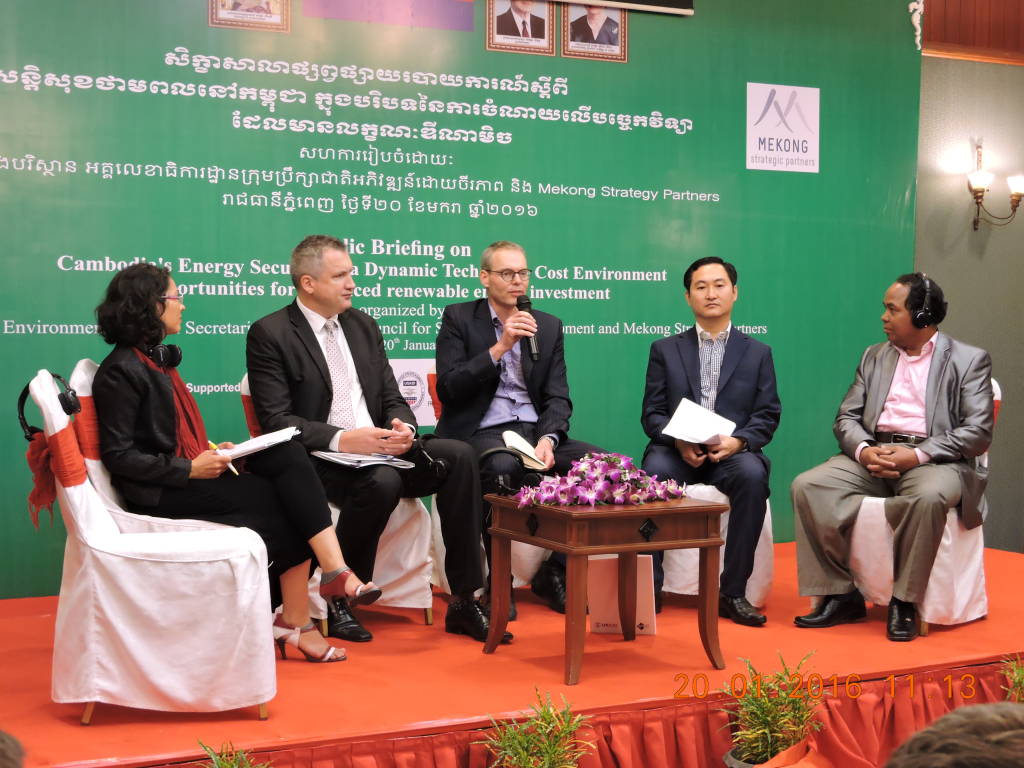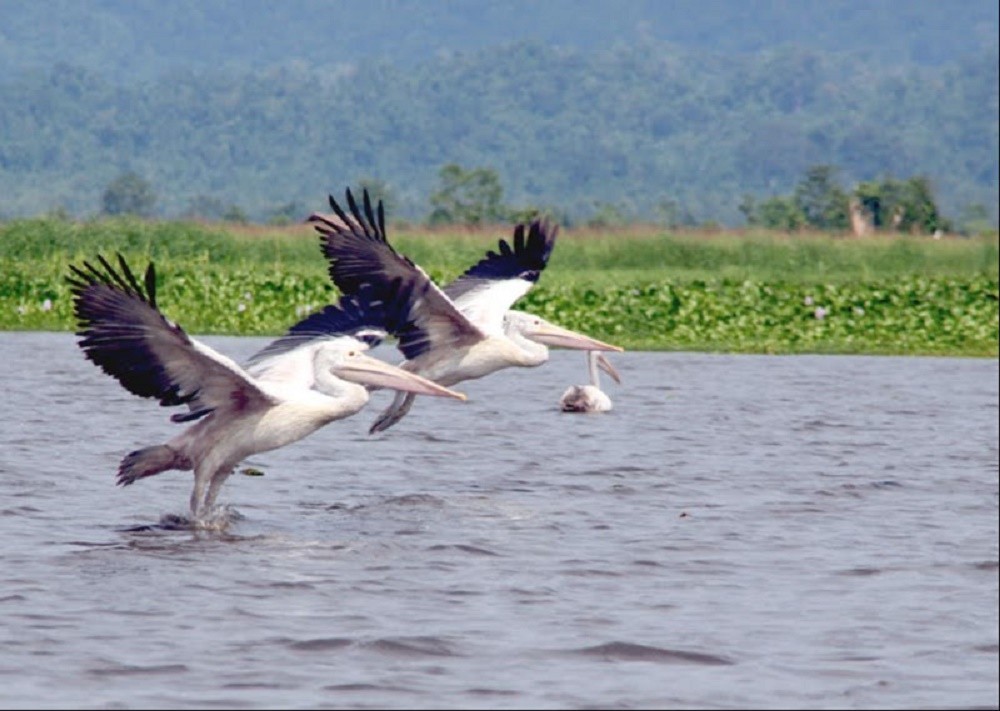The richly illustrated book Living with the Mekong provides readers with insights into urban developments in one of the world’s most threatened deltas. According to the author, the book gives a personal account of “how Vietnam and the Vietnamese people cope with the consequences of climate change.” Joep Janssen, a Dutch urban delta expert, travelled through the Mekong Delta and Ho Chi Minh City area researching the impacts of climate change and development on farmers and urban inhabitants. The Mekong Eye talked to Joep, via email, about urbanization, climate change, development, and how decision makers in the Mekong region might learn from the Dutch experience.
Category: Region
Selected environmental stories from media outlets in the Mekong region and beyond.
Forecast Stormy for Mekong, Commission Says
With the threat of climate change, a long-lasting drought, and contentious dam construction in Laos, the Mekong River Commission (MRC) has its work cut out for the rest of the year. Composed of delegates from Cambodia, Laos, Thailand, and Vietnam, the MRC is in charge of managing the river that provides livelihoods and power for much of Southeast Asia. Several delegates said yesterday that the organization will face challenges in the years ahead.
“Water remains as important as ever,” said General Surasak Karnjanarat, the head of the MRC’s delegation from Thailand. “It needs to be recognized as key to various development goals…but the situation has become more complex due to a number of challenges we are facing.”
Opening of Mekong River School: passing on knowledge on ecology, culture & environment to next generations
Last week, the group of Thai Society of Environmental Journalist and Thai Journalist Association together with 15 news outlets went to Chiang Kong district in Chiangrai province to follow up on the progress of the establishment of the second phase of Special Economic Zone, and the impact on the surrounded communities. They also attended the opening of Mekong School, which is situated on Mekong River bank in Chiang Kong River. Mekong School is set up under the philosophy “Respect for nature and Faith in humanity justice” by villagers and different stakeholders to provide learning space Mekong ecology, culture and environment of Mekong River. Under “Field of Learning” concept, Mekong School provides knowledge on Mekong River history, local cultures and academic researches on Mekong. The school also plans to set up Mekong Library for database and research purposes.
With AIIB, Nation Diversifies Funding Options
Though it’s extremely early days, experts this week welcomed Cambodia’s membership to the nascent China-led Asian Infrastructure Investment Bank (AIIB), saying it would provide much-needed diversity of funding for the nation’s infrastructure and connectivity needs.
Launched in Beijing last weekend, the multilateral development bank aims to support infrastructure growth in the Asia-Pacific region through the provision of loans, and supports China’s ambitious “One Belt, One Road” initiative to boost trade and connectivity across the Eurasian landmass.
Open Development Cambodia new Generation 2 website launched
Open Development Cambodia, has launched its new Generation 2 website. On the new website you will find about 100 pages of briefings covering 17 development sectors, an expanded law compendium, a comprehensive listing of ELCs, new maps, and an improved map explorer, as well as the daily news summaries. This makes ODC the first country website to interface with the new regional Open Development Mekong (https://opendevelopmentmekong.net , as part of a platform expansion that will eventually include websites for all five Lower Mekong countries.
At the Borders of Ecological Destruction
A new year is often a time for joyful celebration. But Pianporn Deetes bid farewell to 2015 with a heavy heart.
“The Administrative Court gave me the most cruel Christmas ever. My spirit was dampened throughout the New Year period,” she said.
Pianporn is remembering her experience listening to the ruling on the Xayaburi Dam on Dec 25. The lawsuit — in which 37 villagers from eight provinces in Thailand affected by the project sued the Energy Ministry and Electricity Generating Authority of Thailand for allegedly signing a power purchase agreement illegally — is a landmark case since it was the first time people have gone to court for environmental and community rights protection from a transborder project championed by the Asean Economic Community (AEC). The dam is now being constructed, with investment from Thailand, on the Mekong River in Laos. When finished, over 90% of electricity from the dam will be sold to Thailand.
Energy crisis predicted after 2020
Myanmar may face an energy crisis after 2020 as oil and gas production has declined and the newly discovered sites are not ready to fill the gap, according to Than Tun, an adviser to Myanmar Oil and Gas Enterprises under the Ministry of Energy.
“We cannot expect what will happen beyond 2020. The newly discovered Shwe Yee Tun block has good prospects. There may be a gap beyond 2020,” said Than Tun, who is also a retired director from the energy ministry. He was speaking at a conference called Changes for Myanmar Oil and Gas Sector, 2016-21 at the Union of Myanmar Federation of Chambers of Commerce and Industry in Yangon.
Report recommends actions to increase Cambodia’s renewable energy use
The Cambodian National Council for Sustainable Development (NCSD), in collaboration with U.S. Agency for International Development (USAID) and its partners, launched a report today that highlights Cambodia’s need to set a formal target for renewable energy generation for sustainable and secure economic growth.
The independent report entitled “Switching On: Cambodia’s Path to Sustainable Energy Security,” supported by the USAID-funded Mekong Partnership for the Environment (MPE) project, recommends that the Cambodian government clarify laws on renewables – such as rooftop solar power – to supply electricity.
Thermopower plants’ fate questionable as Vietnam tries to reduce greenhouse gas emissions
The Ministry of Industry and Trade (MOIT) has assigned the Energy Institute to adjust the seventh electricity generation development plan (PDP 7) before being submitted to the Prime Minister for approval.
Experts have repeatedly warned that the forecast demand and the required investment capital are high, which will put a heavy burden on the national economy.
However, there is another reason cited to adjust PDP 7: the plan does not show appropriate attention to sustainable development in electricity generation. With the plan, Vietnam will still heavily rely on coal thermopower plants.
Gold mining, conflict threaten Myanmar’s Indawgyi Lake
Khaung Tong Creek was a 1.5-meter deep, pristine creek some 10 years ago, but these days this important tributary of Kachin State’s famed Indawgyi Lake is just a little stream some 10 cm deep, filled with red-brownish mud.
Local villagers said years of unregulated gold mining several kilometres away has caused the environmental degradation as dumped waste and chemicals has flowed into the stream.


